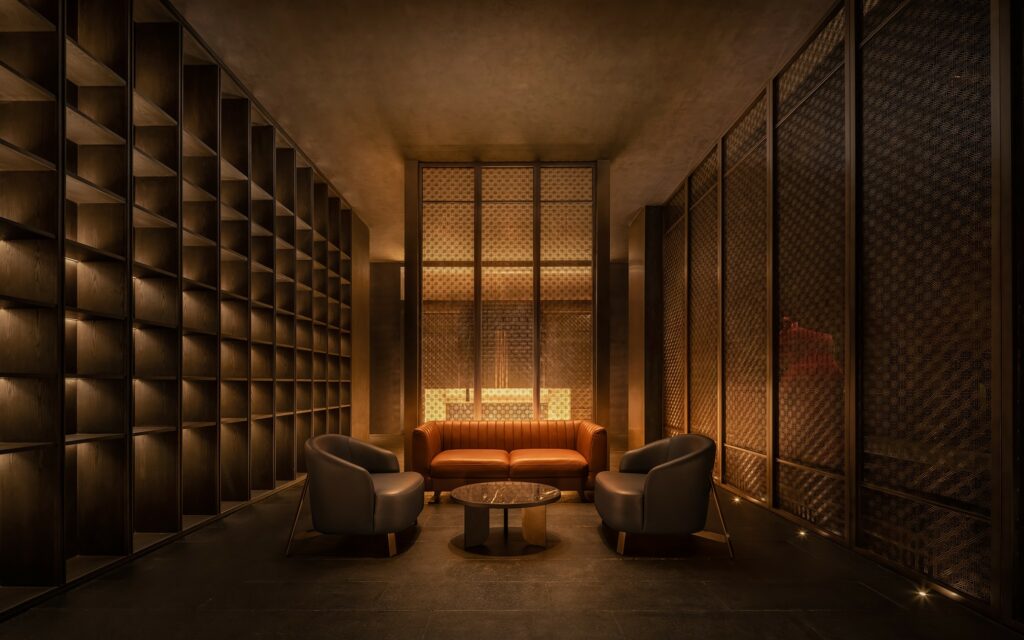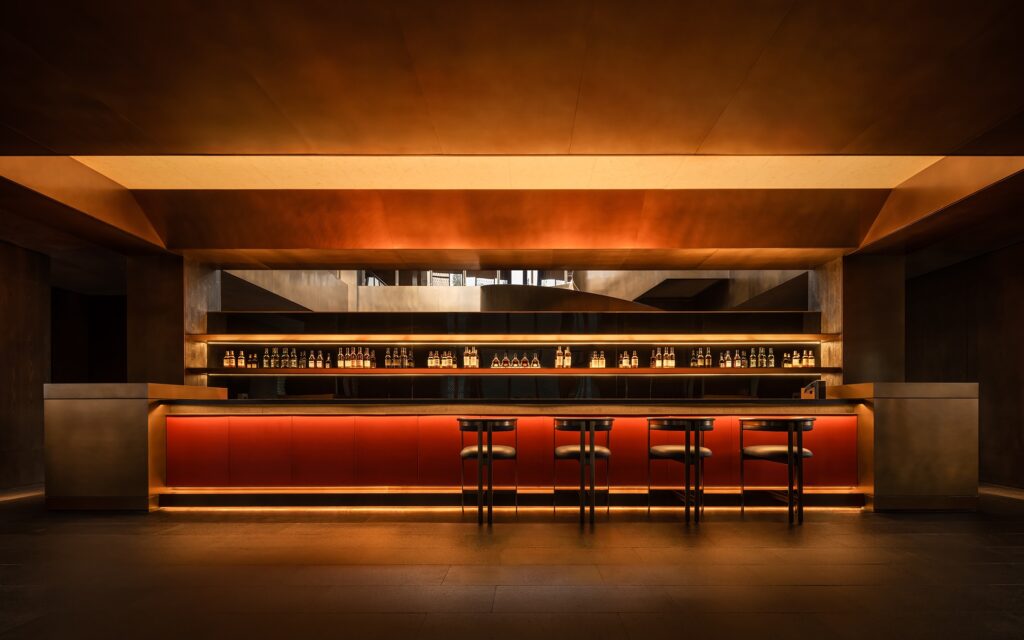Header: Wang Ting
Yangzhou has been serenely resting amidst gardens and beautiful landscapes for centuries. Its people enjoy the world around them in a calm manner which, nowadays, is quite rare to find. Art has tried many times to recreate the unique feeling Yangzhou conveys, however, there’s nothing like experiencing it yourself.
Among gardens, lakes, forests, towers, bridges, dreams, grace, and solitude, the restaurant Qu Yuan stands out with its interior design. The studio LDH Architectural Design Firm is responsible for the design, having combined the outside beauty with the serene interior, opening up a dialogue between nature, space, and people. Slender West Lake‘s banks are adorned with flowers and trees, man-made buildings such as terraces line up the way to the mountains, and right in the middle of it all rests the venue.
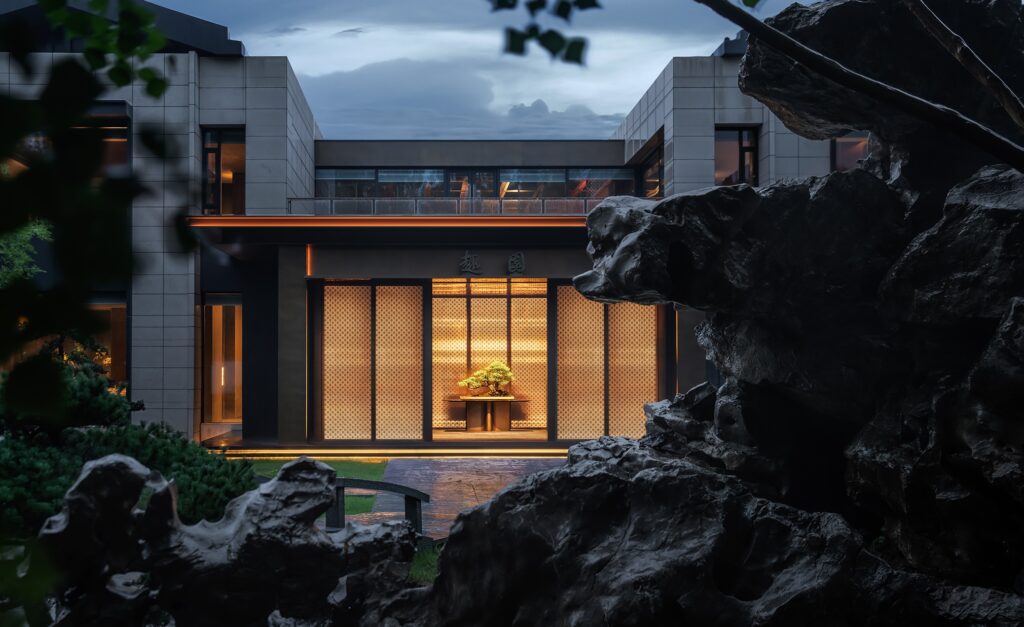
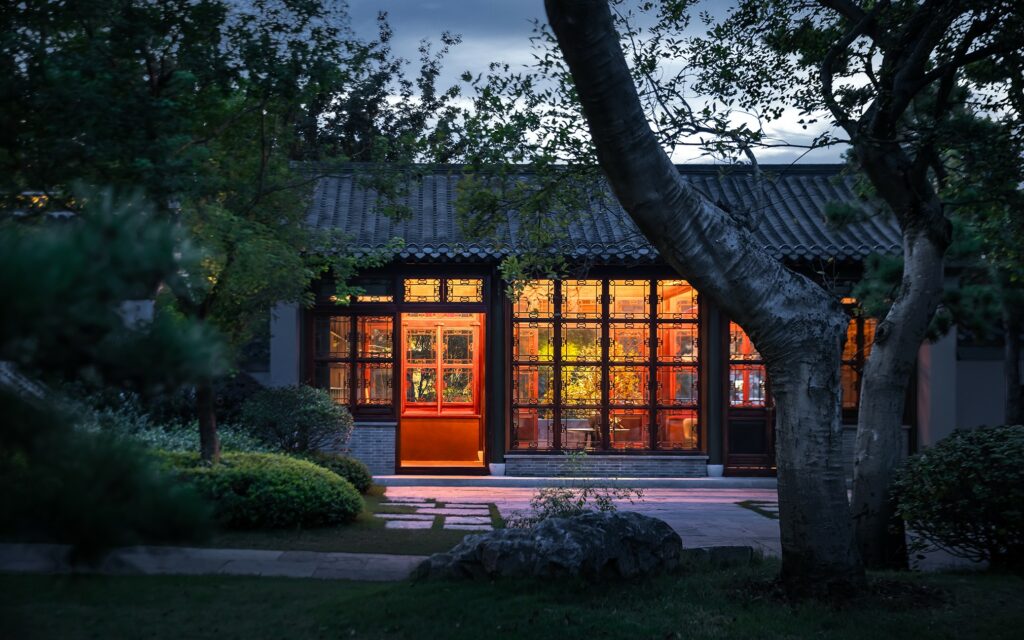
Qu Yuan and time
The area has been the subject of fascination and love for centuries, having even welcomed emperors who couldn’t help but write about what they’d seen there. Emperor Qianlong of the Qing Dynasty poetry talks about how interesting it becomes to step into the beautiful landscape, which served as inspiration for the restaurant’s name, “Qu Yuan“. “Qu” can be translated to “Fun” or “Interesting”, and “Yuan” means “Garden” in Chinese, so the restaurant connects the past, the present, and the future by using the pure soul of the area.
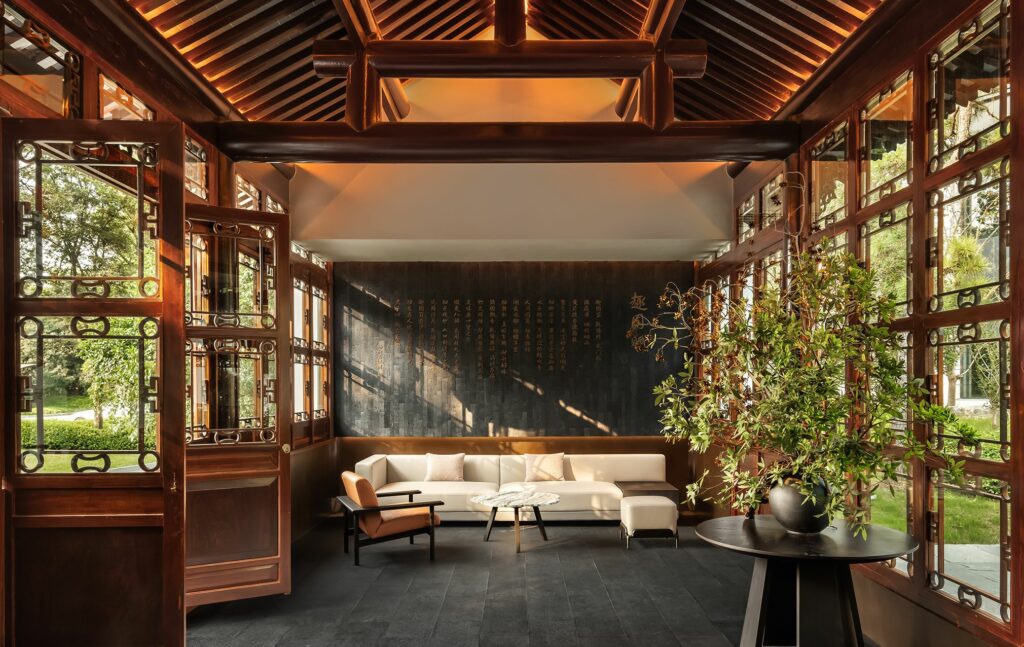
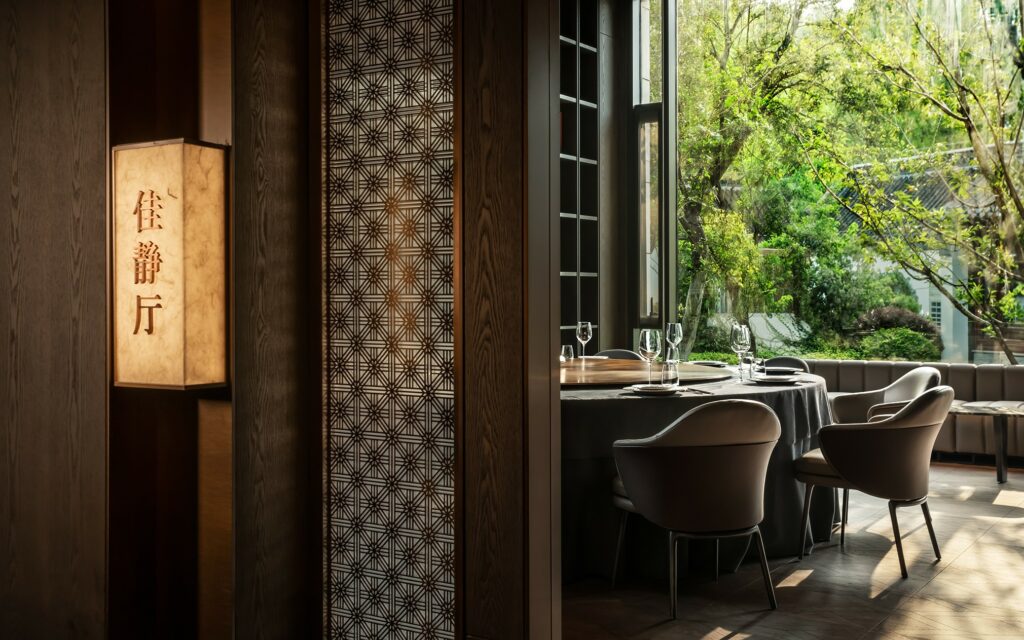
Qu Yuan: nature and renewal
Qu Yuan is not like other restaurants, it manages to bring the wonders of nature and time indoors in a spectacle only comparable to the magic of the land itself. When visiting the restaurant, one can expect to witness the lush greenery of spring, the vibrant growth of summer, the crisp clarity of fall, and the serene beauty of winter.
As time went on, as it does, Qu Yuan saw some changes. Now, it has somewhat of an urban feel, however, admiration for tradition and Chinese culture is still felt. In Qu Yuan, people stop to enjoy a cup of tea and listen to Yangzhou Pinghua, a local folk performed in the area’s dialect. All around them, the city bustles with markets, smells, sounds, and tastes. Visitors are invited to experience such energy for themselves, slowly taking in the delicacies of this unique culture.
Growing with time, the Qu Yuan Tea House emerged in the gardens as well, taking on a new version called “Qu Yuan Plus“, led by Chen Wanqing. The new spot is surrounded by classical Chinese gardens that, together with the elegant modern architecture of the restaurant, are sure to turn the venue into a symbol of a youthful Yangzhou lifestyle.
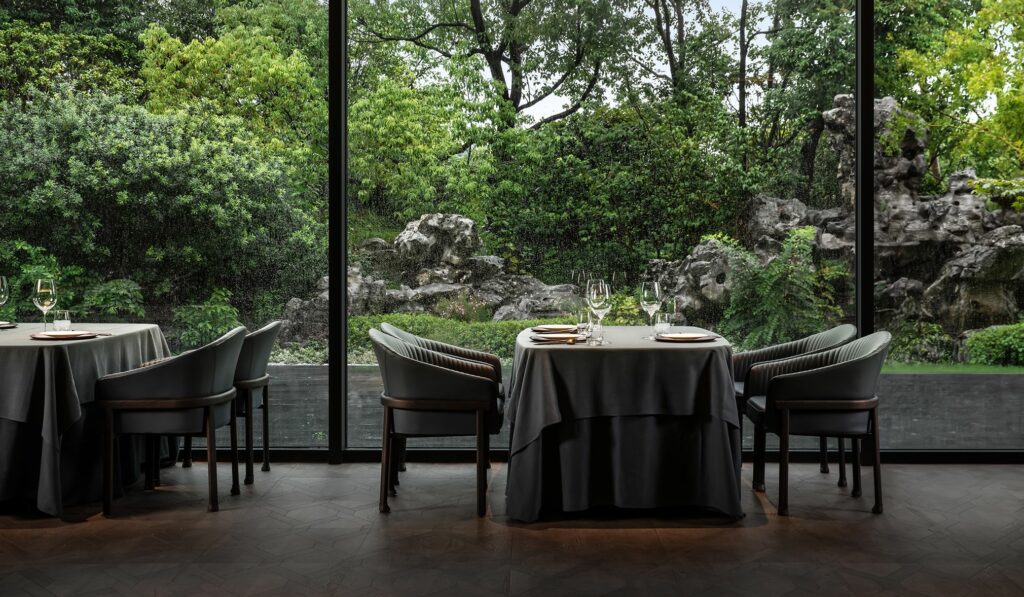
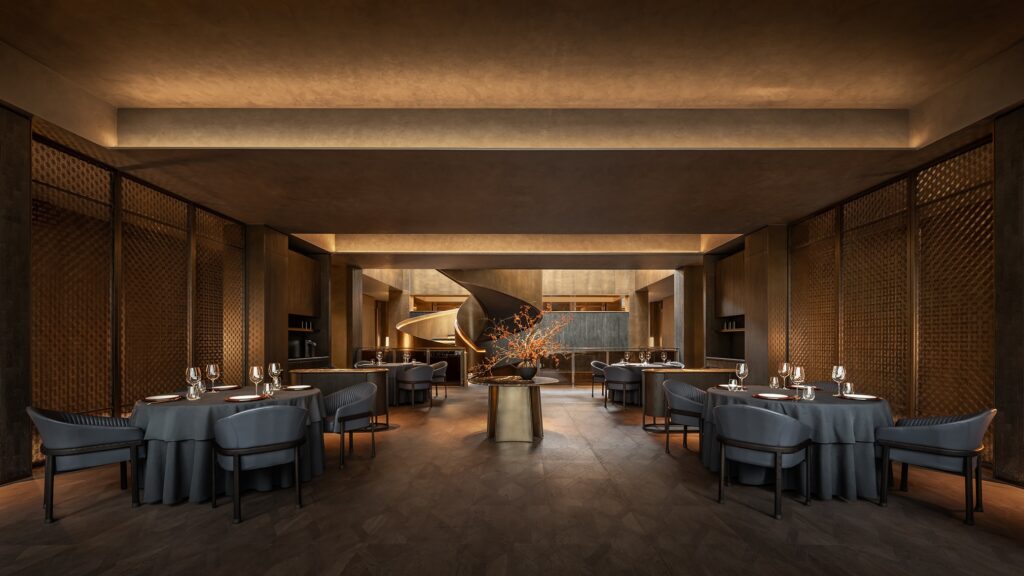
Tranquil inside and out
The designer Liu Daohua decided to bring the gardens inside through the interior design, which gives visitors the sense of having never left the serene mountains and forests that dominate the outside. This seamless merging of two opposites is quite common in classical oriental design, as it evokes the duality that we ourselves experience in life: reality and what we want.
Inside, visitors are taken aback by the tranquility that only a thoughtful design is able to convey. On the exterior, vitality, energy, and lushness dominate. These clear energies are not missed, as they are quite noticeable, even if they are intangible. The result is a tangible home for the soul, where tea and food are served alongside traditional folk music.
